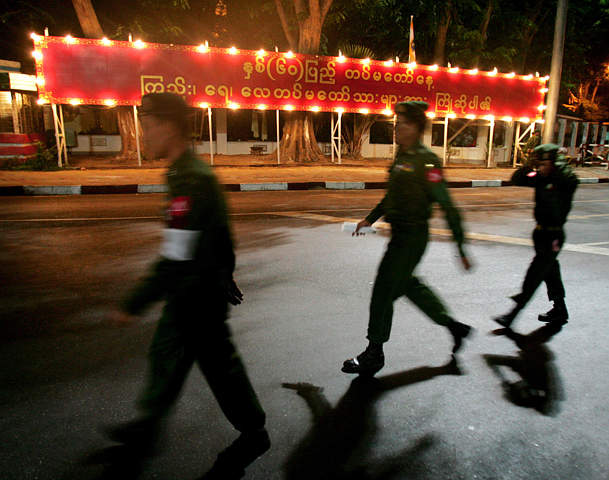Burmese soldiers stormed into a Christian conference in southern Chin state and threatened a member of the state’s parliament at gunpoint, reports the Chin Human Rights Organization (CHRO).
Several soldiers and two captains burst into the gathering of more than 1,000 delegates at the Chin Evangelical Church in Matupi township, near the Indian border, on 10 March, even though the organisers had obtained prior permission in accordance with the government’s strict regulations concerning Christian gatherings.
The troops confronted the village headman before turning on Pu Van Cin, an MP from the Ethnic National Development Party. A man identified by witnesses as Captain Myo Min Htei from Matupi-based Light Infantry Battalion 14 threatened the official at gunpoint.
Myo Min Htei is reported to have said: “I don’t give a [expletive] about you being a member of parliament. We are not under the control of the Chin State authorities. We take orders from the North Western Regional Command.”
“It’s quite interesting that there is this disconnect between the Chin State Government and [Burmese] army,” said Rachel Fleming, Advocacy Director at CHRO in an interview with DVB.
Christians make up 90 percent of the ethnic group’s population in this poor western state in Burma. They continue to face religious discrimination, torture and ill treatment at the hands of the army despite a preliminary ceasefire agreement that was signed between between the Chin National Front (CNF) and the Chin State Government in January, says CHRO.
“It is very difficult for Chin Christians to hold large gatherings without harassment and disruption,” said CHRO’s Program Director Salai Za Uk Ling. “The army is still continuing to violate human rights in Chin state despite signing a peace agreement with the CNF in January. Burmese Army units are still stationed in Chin State and the human rights violations continue to exist at every location [they’re at].”
Fifty-four Burmese army camps remain stationed in all nine main township areas of Chin state. Sources say that the ceasefire deal remains tenuous because the agreement has not been cleared by the central government.
“Although there has been progress in terms of the peace negotiations between the [CNF] and the Chin state level government and a preliminary ceasefire agreement, the Burmese troops are still stationed in Chin state and there doesn’t seem to be any indication that they will be withdrawing from the area,” said Fleming.
The CHRO maintain they have seen “no evidence of improvement” on human rights in the region, especially relating to forced labour. Fleming welcomed moves by the ILO and Burmese government to raise awareness of its complaints mechanism, but described the 2015 deadline to eliminate forced labour as “ambitious”.
“There’s still a level of impunity that needs to be tackled and I think that’s the other aspect that this recent incident shows is that Burmese army soldiers consider themselves to be so much above the law that they can threaten an MP at gunpoint and expect to get away with it.”



